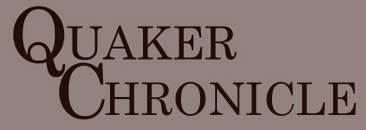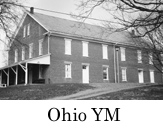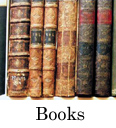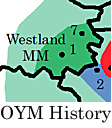John Wilbur was a prominent American Quaker minister and religious thinker who was at the forefront of a controversy that led to "the second split" in the Religious Society of Friends in the United States.
Wilbur was born to Quaker parents in Hopkinton RI on 7/17/1774. Wilbur was recognized as an Elder in 1802 and acknowledged as a minister in 1812. Always intellectually inclined, Wilbur was the teacher of the local Friends school for many years. In 1822, Wilbur was appointed to an important committee of New England Friends to investigate the "new light" movement in Lynn MA. He made a handful of travels in the ministry, for which he became known as an exponent of traditional Quakerism.
In 1831, Wilbur went on his first trip to London YM and encountered a growing Evangelical thrust among the Friends there, which made him uneasy. During this British trip, Wilbur wrote a series of letters to George Crosfield; these letters were well-received statements of Quaker doctrine and have been in print continuously since that time.
Wilbur believed that some Orthodox Friends, especially in England, were so alarmed about the perceived heterodoxy of Elias Hicks that they went too far in the other direction. Wilbur believed this group of Friends was abandoning the traditional Friends practice of following God’s immediate, inward guidance in favor of using their own reason and intellect to interpret and follow the Bible. Wilbur quoted early Friends, such as Robert Barclay, William Penn, and George Fox to make his case concerning the traditional Friends view of depending upon the daily guidance from the inward Light of Christ for sanctification. Wilbur agreed with the ancient Quaker belief that the Bible was inspired by God and was a useful guide in discernment.
Wilbur returned to the United States in 1833. He became embroiled in a dispute with Joseph John Gurney, a Quaker minister from England who soon thereafter travelled throughout the United States. Gurney had been heavily involved in drafting of London YM's epistle in 1836, in which English Friends officially voiced their adoption of the more Evangelical views that Wilbur had encountered and rejected. During Gurney's sojourn in the United States, Wilbur made private comments about Gurney's views to some associates in New England YM and Philadelphia YM.
In 1838 some members of New England YM accused Wilbur of making derogatory statements against Gurney in violation of the principle of handling conflicts through the Friends organizational structure. They ordered South Kingston MM to discipline him, but the local Friends supported Wilbur. In a remarkably unnecessary and divisive step, Rhode Island QM laid down South Kingston MM and attached its members to Greenwich MM, which disowned Wilbur in 1843. This disownment was confirmed by his quarterly meeting and then by the yearly meeting as well.
Wilbur continued in the Friends movement with the support of many like-minded members. In 1845, a division took place in New England over the unusual treatment of Wilbur and his supporters. The smaller New England body came to be called the Wilburites for their support of Wilbur, as did like-minded Friends throughout North America. In succeeding years, other yearly meetings divided: New York in 1846 and Ohio, Indiana, and Baltimore in 1854. The Wilburite Friends later entered into fellowship with a branch called the Conservative Friends.
Wilbur made a second journey to England in 1853-1854. He died on 5/1/1856, the same year that two other leading Wilburite Quakers died (Thomas B. Gould and Job Otis). |






